Table of Contents
- Benefits of Protein Intake
- Building Lean Muscle Mass
- Boosting Metabolism
- Increasing Satiety
- Aiding in Muscle Recovery
- Improving Nutrient Absorption
- Tips for Increasing Protein Intake
Benefits of Protein Intake
Protein is an essential macronutrient that plays a crucial role in weight loss. It has several benefits, including:
Building Lean Muscle Mass
Protein is the building block of muscles, and consuming an adequate amount can help you build and maintain lean muscle mass.
When it comes to losing weight and getting in shape, building lean muscle mass is crucial. Lean muscle not only helps to increase your metabolism, but it also gives your body a toned and sculpted appearance.
One of the key factors in building lean muscle mass is ensuring that you are getting enough protein in your diet. Protein is essential for muscle growth and repair, making it a vital nutrient for anyone looking to increase their muscle mass.
Protein intake is also important for weight loss. When you consume enough protein, it helps to keep you feeling full and satisfied, which can prevent overeating and snacking on unhealthy foods. Additionally, protein has a higher thermic effect compared to fats and carbohydrates, meaning that your body burns more calories during digestion and metabolism.
Overall, ensuring that you are getting an adequate amount of protein in your diet is crucial for building lean muscle mass and achieving your weight loss goals.

Boosting Metabolism
Protein has a high thermic effect, meaning that it requires more energy to digest compared to fats and carbohydrates. This can help boost your metabolism and aid in weight loss.
When it comes to weight loss, one key factor that many people overlook is the importance of protein intake. Protein is essential for boosting metabolism and helping your body burn more calories, leading to increased fat loss.
Protein is known to be a thermogenic nutrient, meaning that it requires more energy for your body to digest and metabolize compared to fats or carbohydrates. This means that by increasing your protein intake, you can effectively boost your metabolism and burn more calories throughout the day.
Additionally, protein is essential for preserving muscle mass during weight loss. When you restrict your calorie intake to lose weight, your body may turn to breaking down muscle for energy. However, by consuming an adequate amount of protein, you can help preserve your muscle mass and promote fat loss instead.
Incorporating protein-rich foods such as lean meats, fish, eggs, dairy, legumes, and nuts into your diet can help support your weight loss goals and improve your overall metabolism. Remember to balance your protein intake with a variety of fruits, vegetables, whole grains, and healthy fats for a well-rounded and nutritious diet.
By prioritizing protein intake and focusing on boosting your metabolism, you can enhance your weight loss efforts and achieve your desired results more effectively.
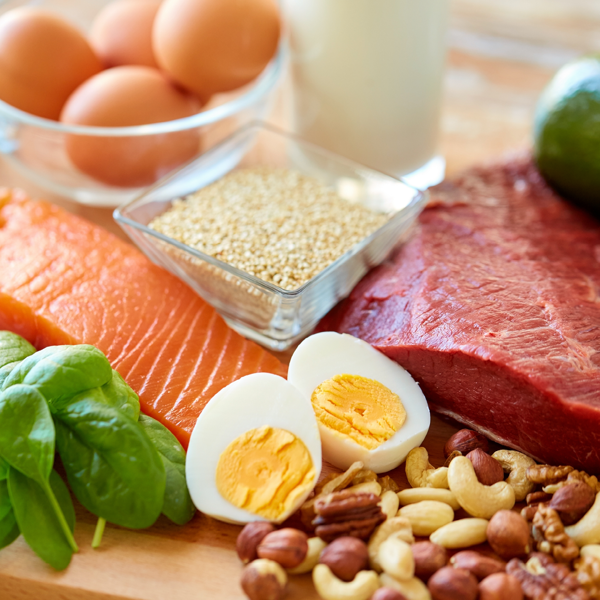
Increasing Satiety
Protein is known to increase feelings of fullness and reduce hunger, which can prevent overeating and support weight loss efforts.
When it comes to weight loss, protein intake plays a crucial role in helping you feel full and satisfied. Protein has a higher satiety value compared to carbohydrates and fats, which means that it can help control hunger and prevent overeating.
By incorporating protein-rich foods into your diet, you can increase feelings of fullness and reduce cravings, making it easier to stick to your weight loss goals. Additionally, protein helps to preserve lean muscle mass during weight loss, which can help improve your overall body composition.
Some protein-rich foods to include in your diet are lean meats, poultry, fish, eggs, dairy products, legumes, and nuts. It's important to spread your protein intake throughout the day to support muscle protein synthesis and promote satiety.
Overall, increasing your protein intake can be a valuable strategy for weight loss by helping you feel full, satisfied, and in control of your hunger levels.
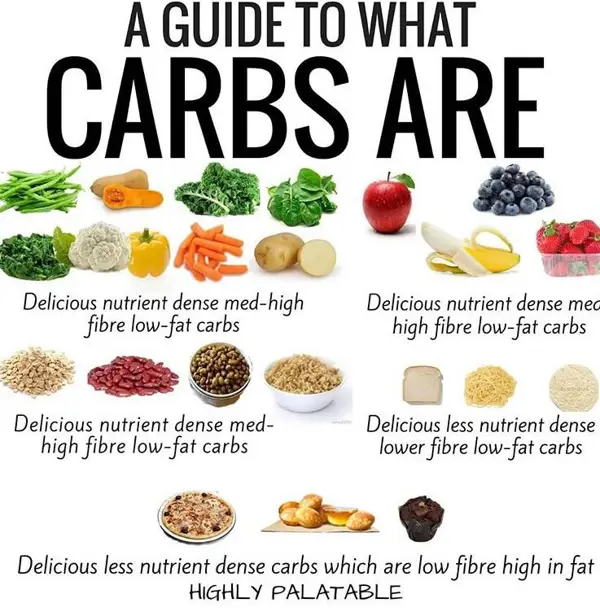
Aiding in Muscle Recovery
Consuming protein post-workout can help with muscle recovery and repair, allowing you to recover faster and perform better in subsequent workouts.
Aiding in Muscle Recovery: Why Protein Intake is Important for Weight Loss
When it comes to achieving weight loss goals, many people focus on cutting calories and increasing physical activity. While these are important factors, protein intake also plays a crucial role in supporting muscle recovery and promoting fat loss.
Protein is essential for repairing and rebuilding muscles that have been broken down during exercise. This is especially important for individuals who engage in regular physical activity, as inadequate protein intake can lead to muscle loss and a slower metabolism.
Additionally, protein helps to keep you feeling full and satisfied, which can prevent overeating and promote weight loss. Studies have shown that increasing protein intake can boost metabolism and increase the number of calories burned during digestion.
Overall, prioritizing protein intake as part of a balanced diet can help support muscle recovery, promote fat loss, and improve overall body composition. So be sure to include lean protein sources such as chicken, fish, tofu, and legumes in your meals to support your weight loss goals.
Start incorporating more protein into your diet today and see the positive impact it can have on your weight loss journey!
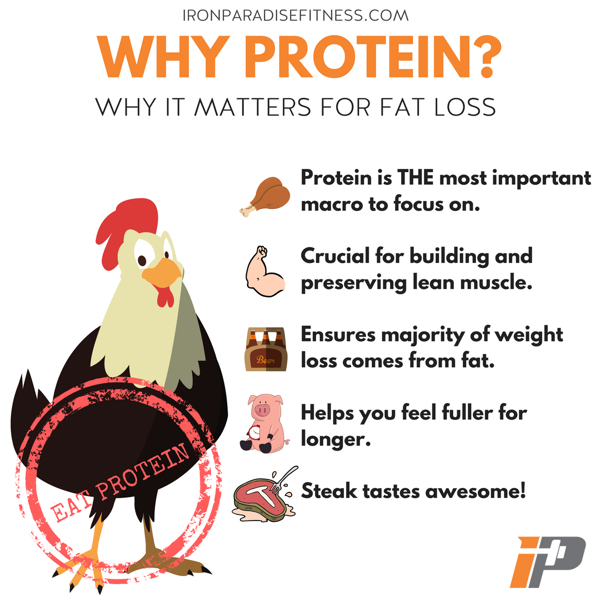
Improving Nutrient Absorption
Protein plays a role in nutrient absorption, ensuring that your body can effectively utilize the essential vitamins and minerals needed for optimal health and weight loss.
Eating a diet high in protein can significantly aid in weight loss by improving nutrient absorption in the body. Proteins are essential for building and repairing tissues, and they also play a crucial role in maintaining muscle mass during weight loss.
Proteins are made up of amino acids, which are the building blocks of life. When consumed, proteins are broken down into amino acids, which are then absorbed by the body and used for various functions. These amino acids are necessary for the body to perform essential functions, such as metabolism and energy production.
Additionally, protein-rich foods are known to have a higher thermic effect compared to carbohydrates and fats, meaning that the body burns more calories during digestion and absorption of protein. This can help boost metabolism and aid in weight loss efforts.
Incorporating lean protein sources such as chicken, fish, tofu, and legumes into your diet can help you feel fuller for longer periods, reducing cravings and overall calorie intake. This can ultimately lead to a caloric deficit, which is essential for weight loss.
Overall, prioritizing protein intake in your diet can not only aid in weight loss but also improve overall nutrient absorption in the body, leading to better health and well-being.
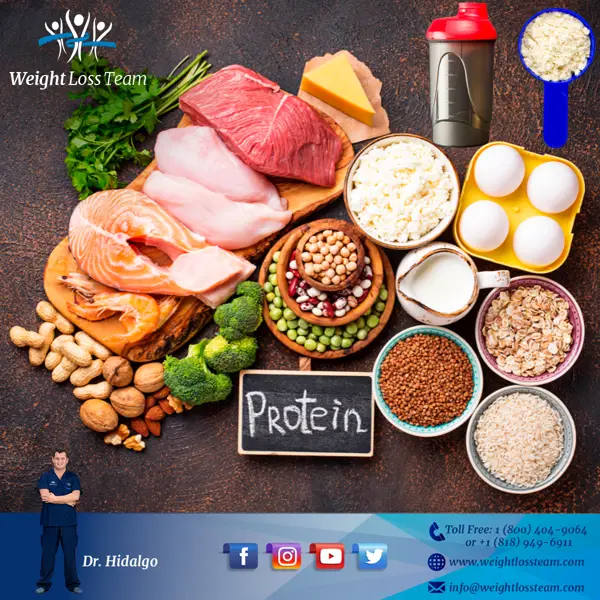
Tips for Increasing Protein Intake
If you're looking to increase your protein intake for weight loss, consider incorporating foods such as lean meats, poultry, fish, eggs, dairy products, legumes, nuts, and seeds into your diet.
Protein is an essential macronutrient that plays a crucial role in weight loss and overall health. Increasing your protein intake can help boost your metabolism, reduce hunger and cravings, and promote muscle growth and maintenance. Here are some tips for incorporating more protein into your diet:
- Include a protein source in every meal and snack, such as lean meats, poultry, fish, eggs, dairy products, tofu, legumes, nuts, and seeds.
- Choose high-quality protein sources that are low in saturated fat and calories.
- Opt for protein-rich snacks like Greek yogurt, cottage cheese, protein bars, and nut butter.
- Experiment with different cooking methods, such as grilling, baking, or sautéing, to add flavor and variety to your meals.
- Consider incorporating protein supplements like protein powders or shakes to meet your daily protein needs.
By increasing your protein intake, you can support your weight loss goals and improve your overall health and well-being.
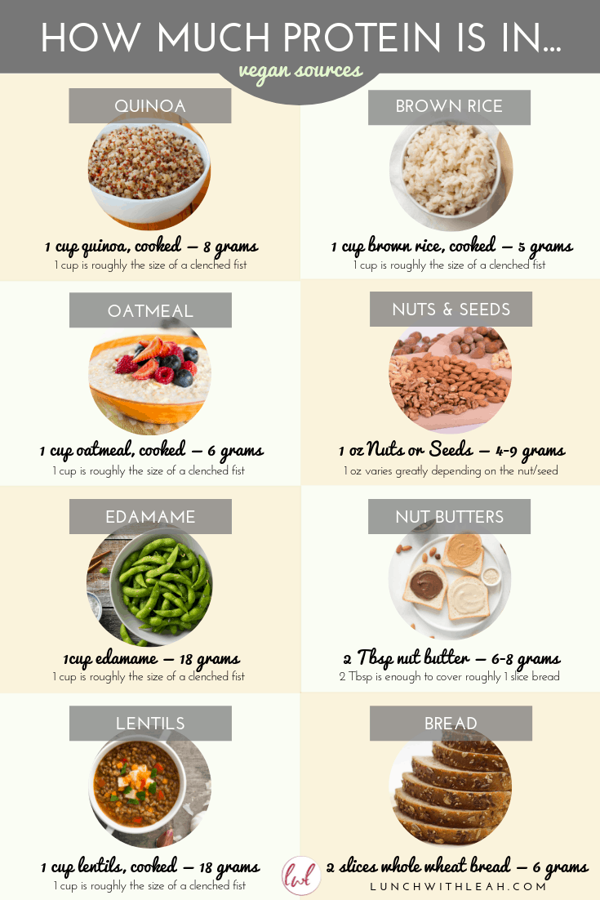
Key Takeaways
- Protein intake is crucial for building lean muscle mass and boosting metabolism.
- Protein can increase feelings of fullness and aid in weight loss efforts.
- Consuming protein post-workout can support muscle recovery and repair.
- Protein plays a role in nutrient absorption, ensuring optimal health and weight loss.
- Incorporate protein-rich foods into your diet to increase your protein intake.
FAQ
Q: How much protein should I consume for weight loss?
A: It is recommended to consume 0.8-1.0 grams why protein important kilogram of body weight for weight loss.
Q: Are protein supplements necessary for weight loss?
A: Protein supplements can be beneficial for individuals who struggle to meet their protein requirements through whole foods, but they are not essential for weight loss.
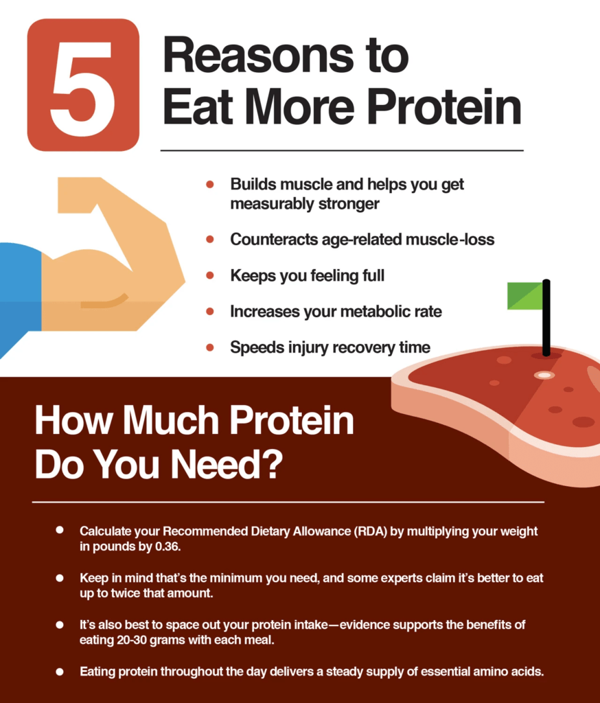


Recent Comments